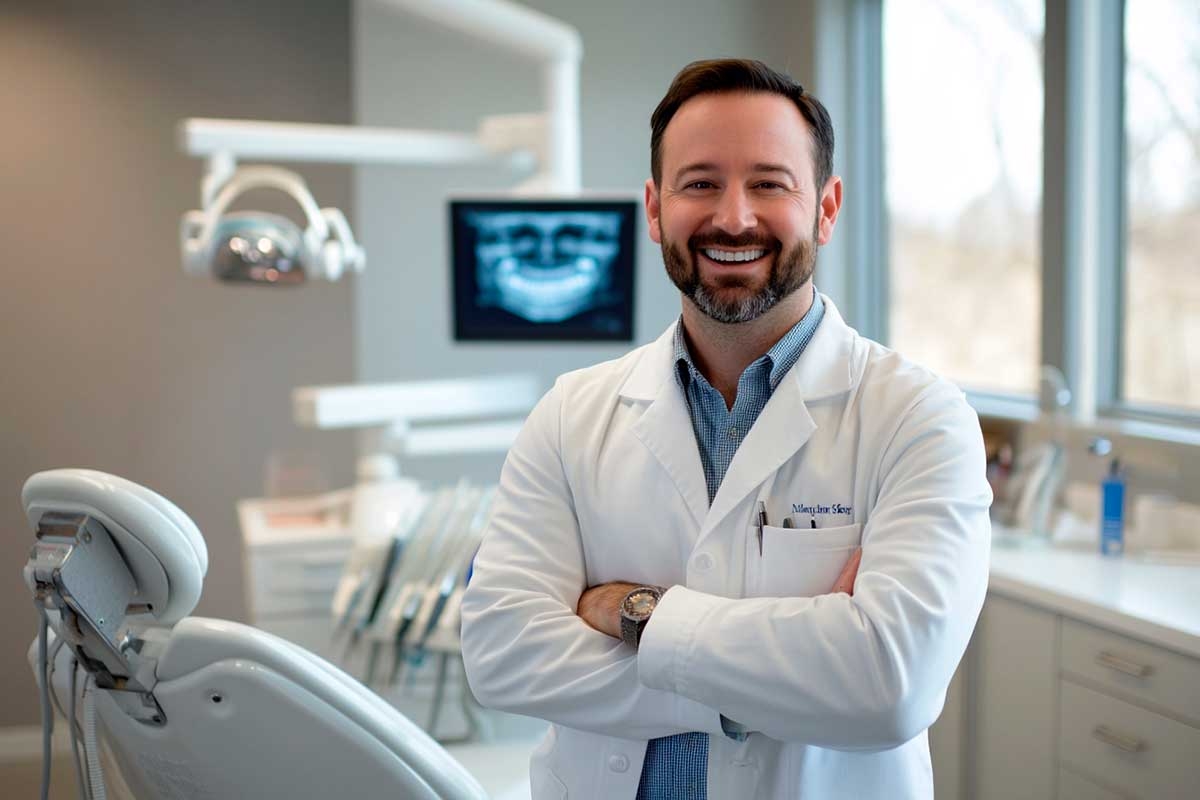
Dentist
Watch our video about Dentist
A dentist is a healthcare professional specializing in preventing, diagnosing, and treating oral and dental health issues. Their role extends beyond treating tooth problems; they also ensure gum health, jaw alignment, and overall oral well-being.
Dentists perform a variety of procedures, from routine cleanings and fillings to complex treatments such as root canals, dental implants, and orthodontic corrections. Regular visits to a dentist help maintain a healthy and beautiful smile while preventing serious dental conditions.
What Diseases Does a Dentist Treat?
A dentist treats numerous oral health conditions, including:
- Cavities (Tooth Decay) – Damage caused by bacteria, leading to holes in the teeth.
- Gingivitis – Inflammation of the gums that can cause bleeding and swelling.
- Periodontitis – Advanced gum disease that can result in tooth loss.
- Tooth Sensitivity – Discomfort caused by hot, cold, or sweet foods and drinks.
- Tooth Abscess – A painful infection at the root of a tooth or between the gums.
- Malocclusion (Bite Misalignment) – Problems with how the teeth align when biting or chewing.
- Bruxism (Teeth Grinding) – Habitual grinding or clenching of teeth that can cause wear and pain.
Dentists also manage oral health complications related to systemic diseases such as diabetes and osteoporosis.
How Can a Dentist Help?
A dentist plays a crucial role in maintaining dental and overall health through:
- Preventive Care: Regular check-ups, professional cleanings, and fluoride treatments.
- Restorative Treatments: Fillings, crowns, bridges, and root canal therapy to restore damaged teeth.
- Cosmetic Dentistry: Teeth whitening, veneers, and orthodontic procedures to improve aesthetics.
- Gum Disease Management: Deep cleaning procedures to prevent periodontal disease.
- Tooth Replacement: Dental implants, dentures, and bridges for missing teeth.
- Emergency Dental Care: Treatment for severe tooth pain, infections, and trauma.
- Education on Oral Hygiene: Guidance on proper brushing, flossing, and diet for oral health.
What Tests Does a Dentist Request?
A dentist may order various tests and examinations to assess oral health and detect underlying problems, including:
- Dental X-Rays – Images that help detect cavities, infections, and bone loss.
- Panoramic Radiography – A full-mouth X-Ray to evaluate wisdom teeth, jaw structure, and sinus issues.
- Bite Analysis – Assesses jaw alignment and bite problems.
- Oral Cancer Screening – Examines tissues for early signs of oral cancer.
- Periodontal Examination – Evaluates gum health and measures pocket depth.
- Tooth Sensitivity Test – Identifies underlying causes of tooth pain.
- Salivary pH Testing – Checks acidity levels that may contribute to cavities and erosion.
When to See a Dentist?
It is essential to see a dentist if you experience any of the following:
- Tooth Pain or Sensitivity – Persistent pain or discomfort when eating hot, cold, or sweet foods.
- Bleeding Gums – Gums that bleed while brushing or flossing can be a sign of gingivitis or periodontitis.
- Bad Breath (Halitosis) – Persistent bad breath that does not improve with oral hygiene.
- Loose or Shifting Teeth – Movement of teeth may indicate underlying bone loss or gum disease.
- Mouth Sores That Don't Heal – Ulcers or lesions that last more than two weeks may require evaluation.
- Difficulty Chewing or Speaking – Problems with jaw movement or pain while chewing.
- Jaw Pain or Clicking Sounds – Discomfort or popping sounds in the jaw could indicate temporomandibular joint (TMJ) disorders.
Regular dental visits (every six months) help prevent and detect issues before they become serious problems.
How to Prevent Dental Diseases?
To maintain optimal oral health and prevent dental issues, follow these preventive measures:
- Brush your teeth twice a day with fluoride toothpaste.
- Floss daily to remove plaque between teeth.
- Visit your dentist every six months for check-ups and cleanings.
- Limit sugar intake to reduce the risk of cavities.
- Avoid smoking and excessive alcohol consumption.
- Wear a mouthguard if you grind your teeth or play contact sports.
- Stay hydrated to promote saliva production and prevent dry mouth.
What to Ask a Dentist During the First Consultation?
When visiting a dentist for the first time, consider asking the following questions:
- Are my teeth and gums in good health?
- What areas of my oral hygiene need improvement?
- Do I need any immediate treatments or preventive care?
- Are there any signs of gum disease or cavities?
- What type of toothbrush and toothpaste should I use?
- Should I consider any cosmetic dental treatments?
- How often should I schedule dental check-ups?
Schedule a Consultation with a Dentist at Clinic Consultation
Clinic Consultation offers specialized dental care, providing preventive, restorative, and cosmetic treatments to maintain excellent oral health. Whether you need a routine check-up, dental treatment, or smile enhancement, our expert dentists are here to help.
📅 Book your dental consultation today and keep your smile healthy and bright with Clinic Consultation!
Click here to schedule an appointment online